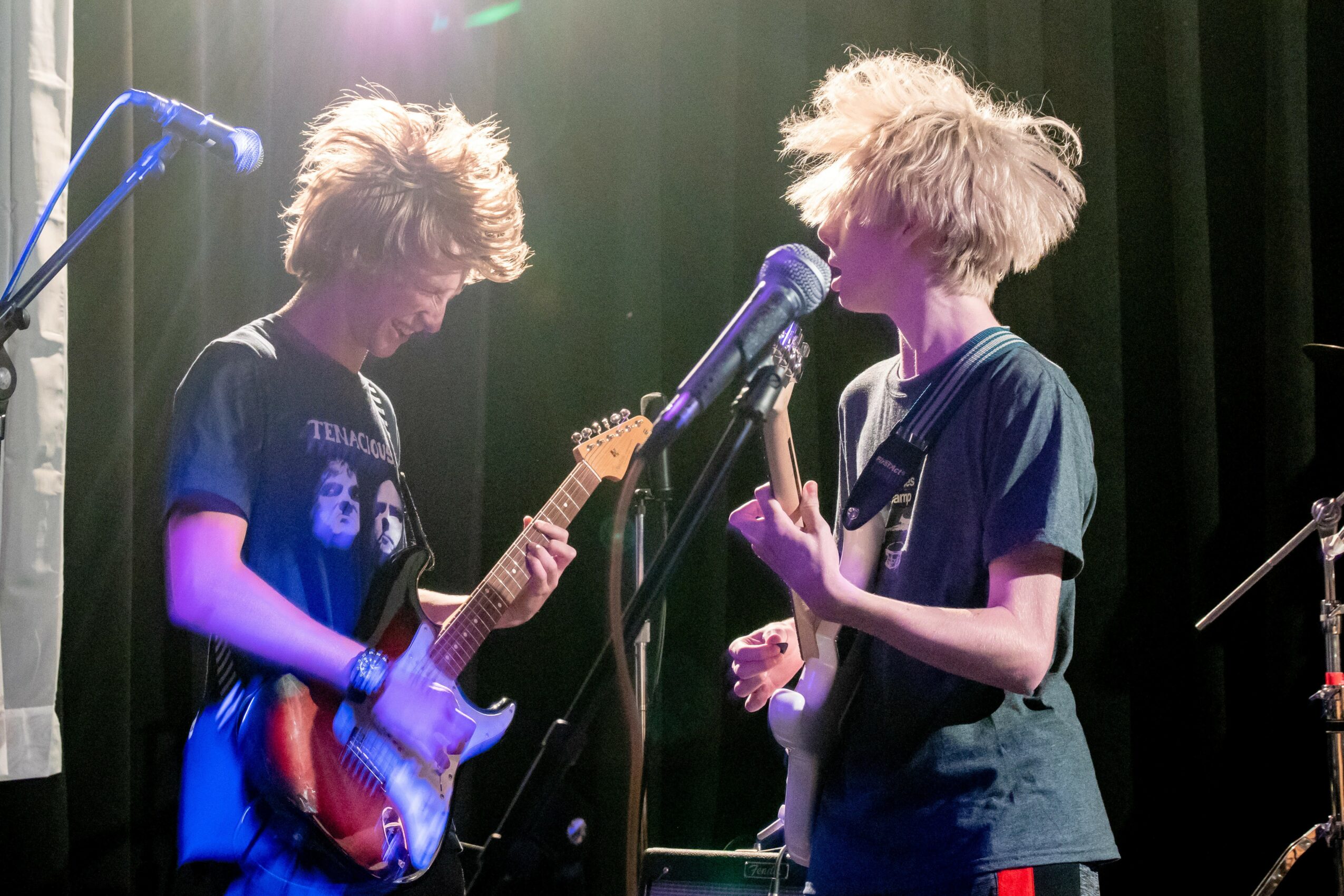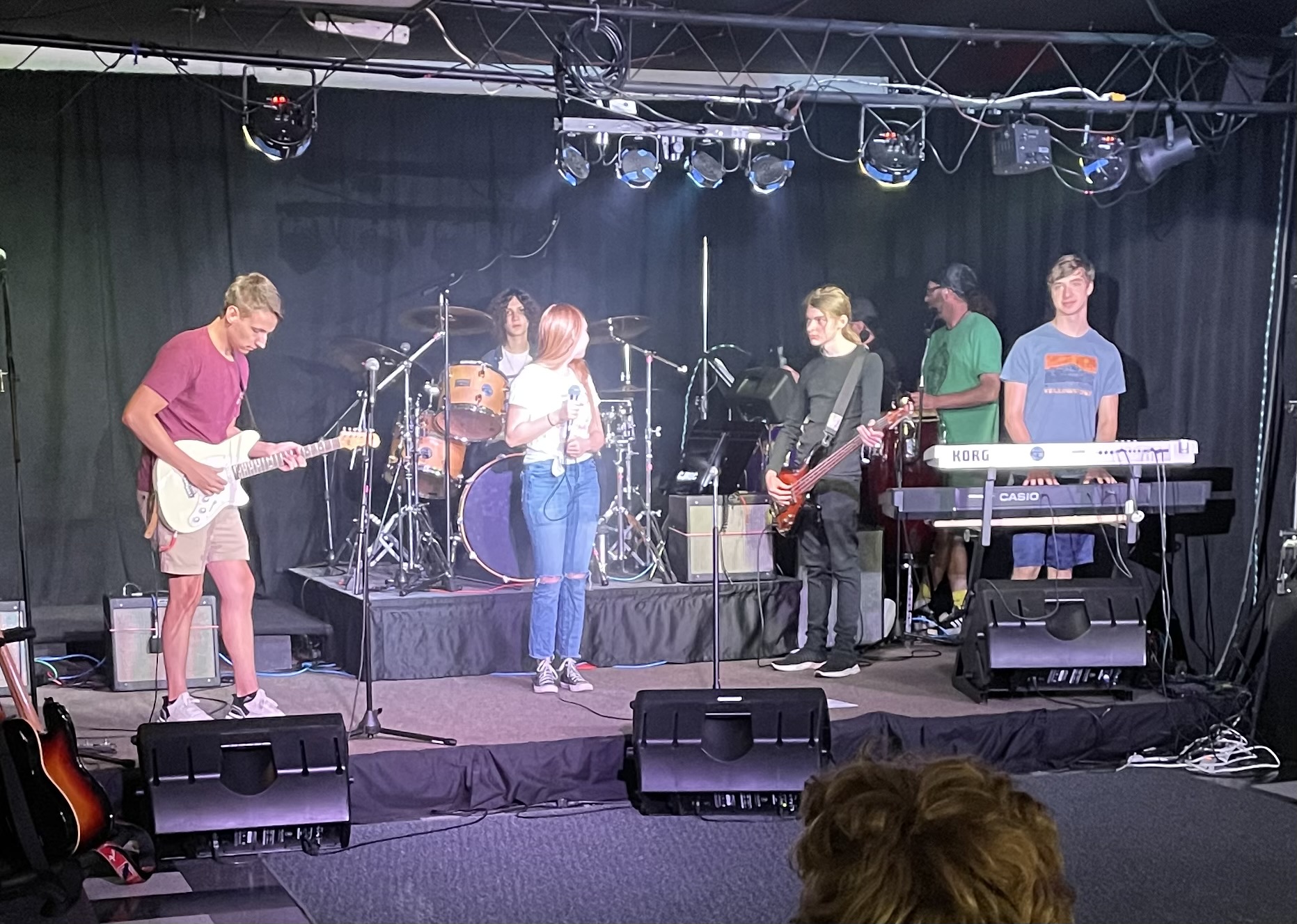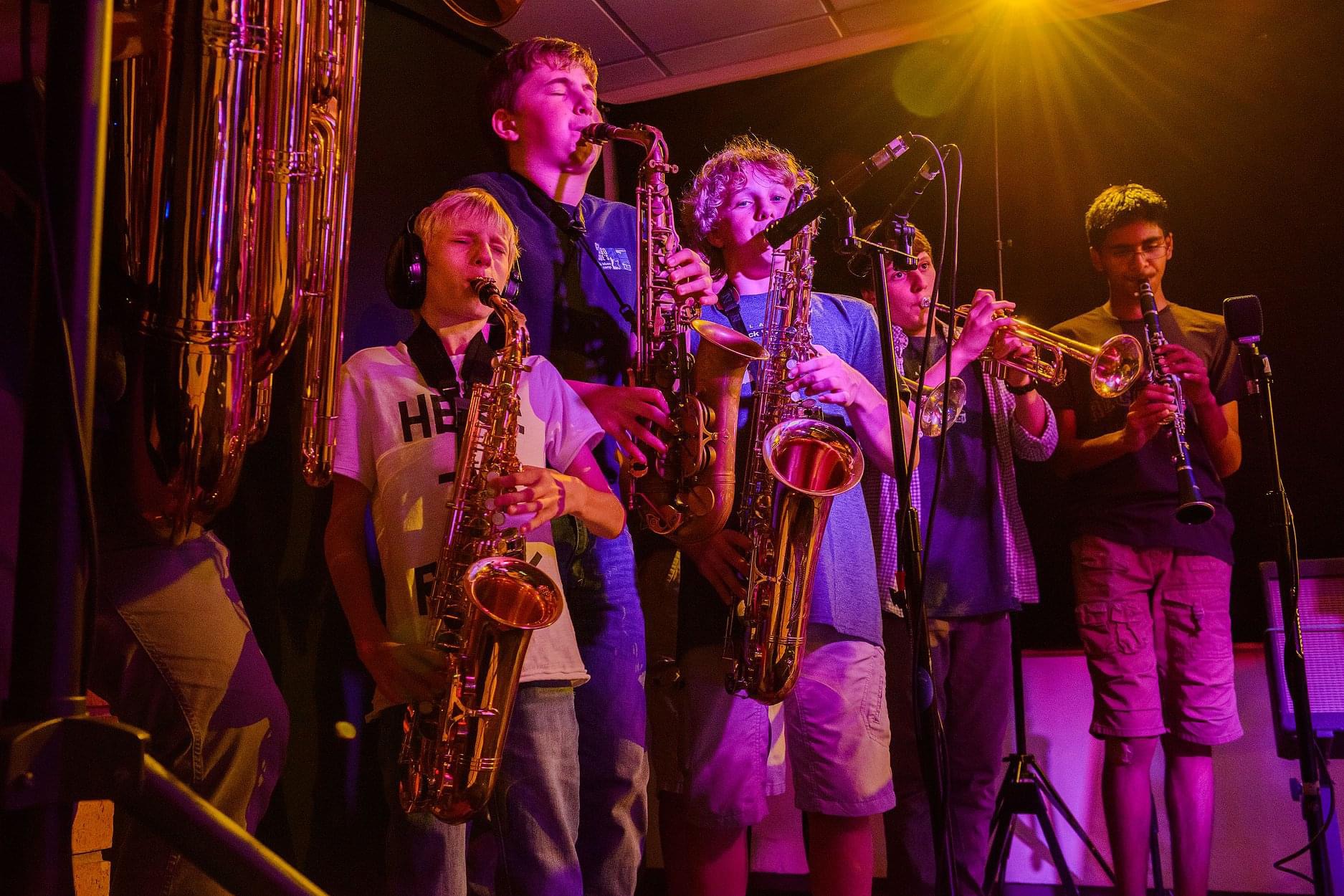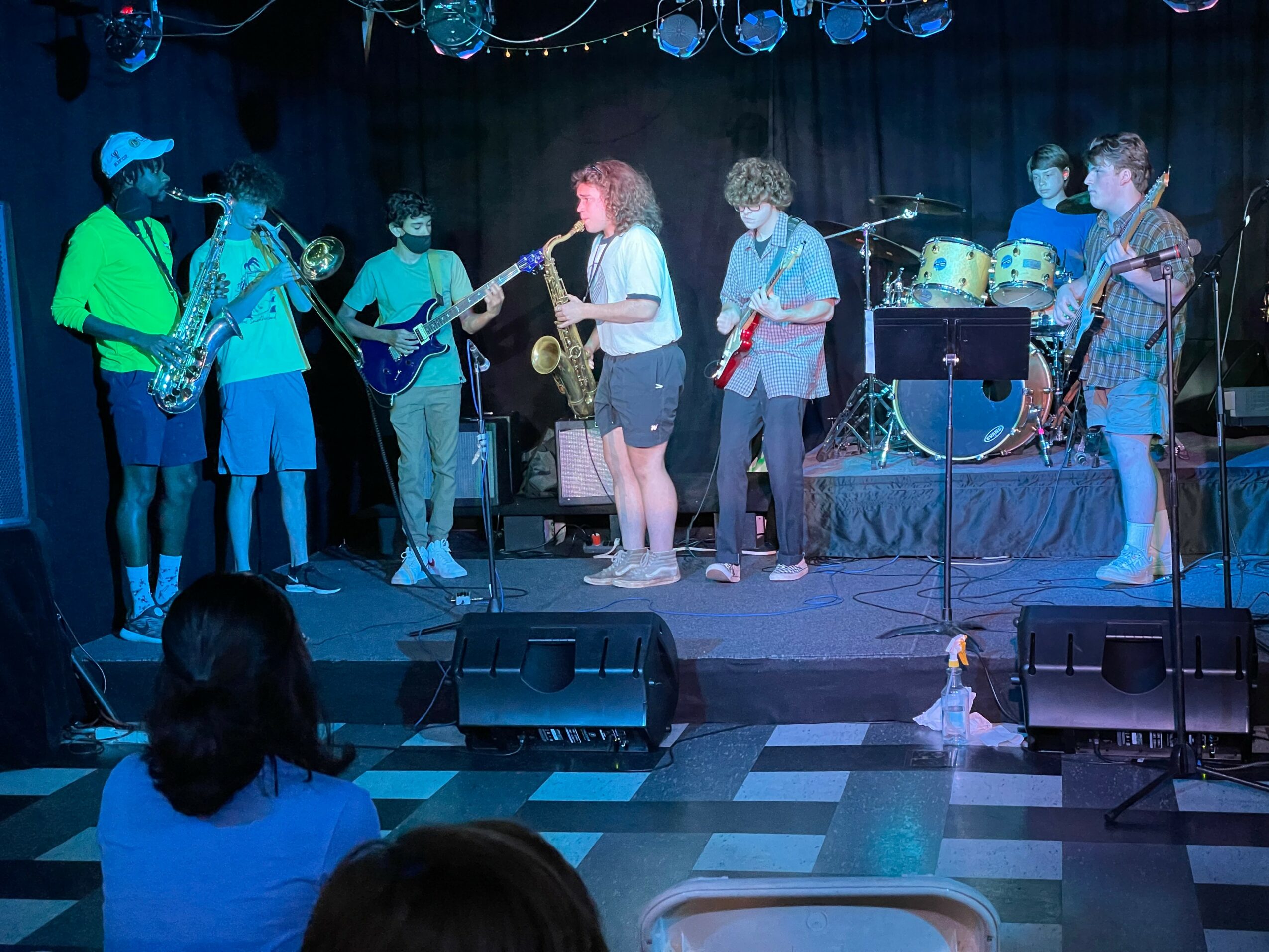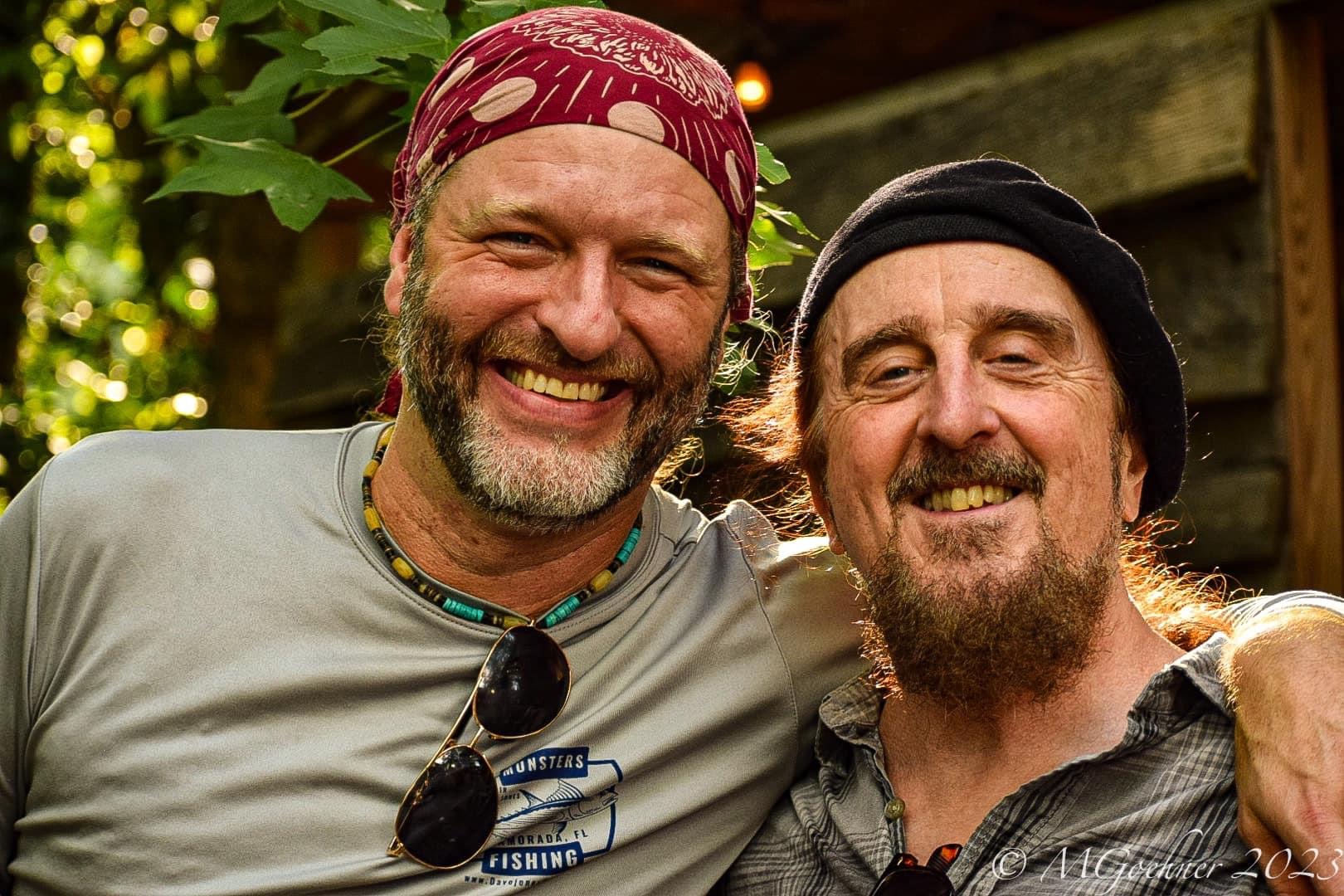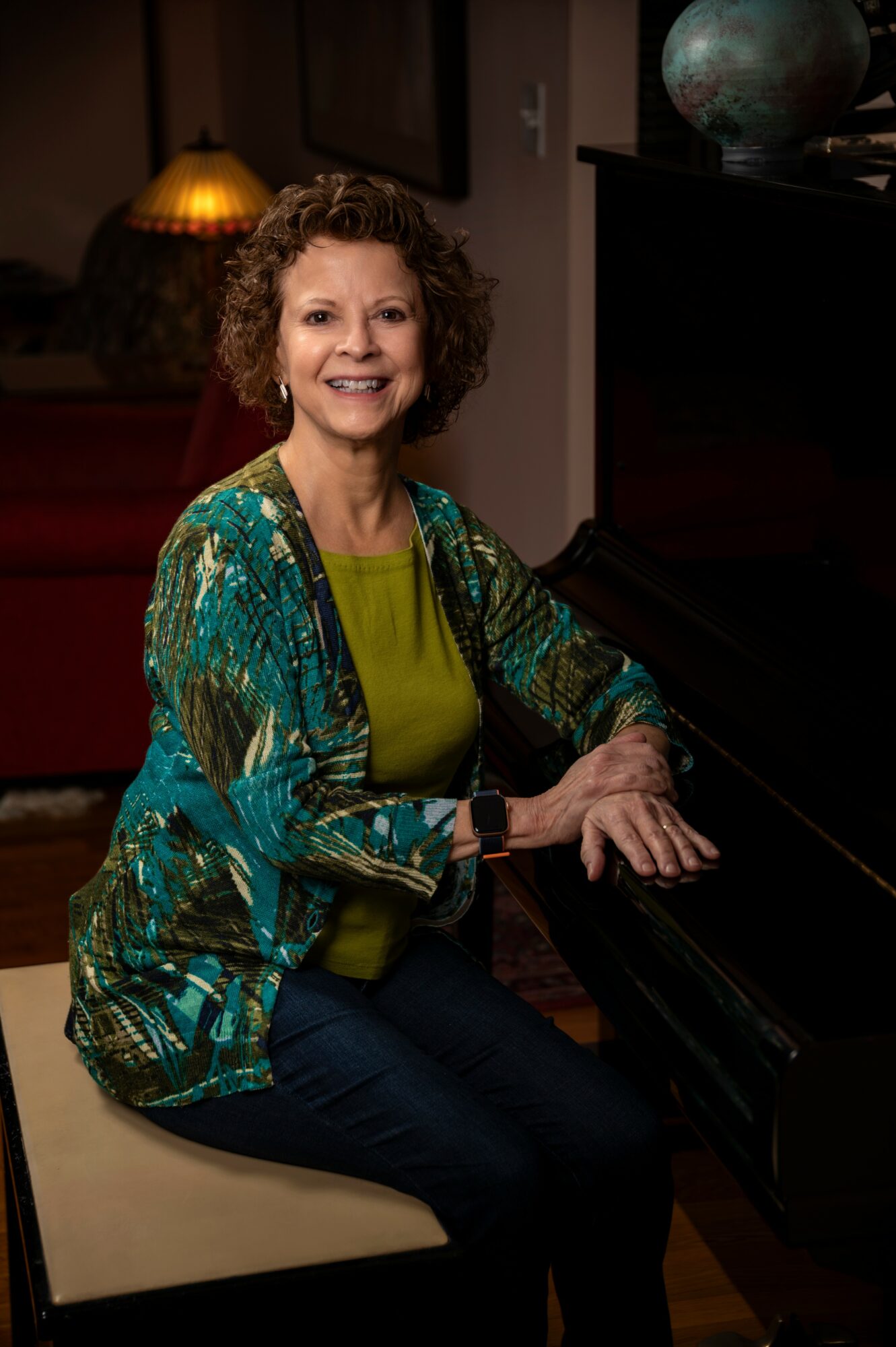

Today we’d like to introduce you to Micki Gonzalez.
Hi Micki , please kick things off for us with an introduction to yourself and your story.
In 2005 my 11-year-old son, who by then was a pretty good guitarist, wanted to start a band with his friends. However they didn’t have any background to help them know how to prepare for a rehearsal, what songs would fit their skill sets, how to look on stage while performing, etc. I mentioned this to his guitar teacher, Chicago Joe Jones, and suggested that he help me take some of his students for a week or two in the summer and teach them how to do all of the things that bands need to do in order to perform well. That first year we did three week sessions, with a total of 23 kids. The next year we had 48, the next year 96, and we leveled off at the highest number of bands – six- we could accommodate for a 90 minute show at the end of the week. Each day the bands had to perform a song they had learned that day and add as the week went along. So Mondays each played one song, Tuesday, two, Wednesday three, and Thursday four. As Thursday evenings were already jam nights, we took them to the jam, invited parents, and allowed them to choose three of their songs. This “dress rehearsal” (or bar gig, as some would call it) really helped them get the nerves under control and learn to react to audiences. Friday night’s show was to be videoed and recorded so this helped those shows be much more professional.
We included the usual instruments, plus keyboard and horns. Our horn section became a favorite, and played with all of the bands. We eventually leveled off to 4 bands, especially after the pandemic.
One of the joys of doing this camp is the “testimonials” I receive any time I run into a former camper, who inevitably thanks me profusely for the most important thing in their growing up years. You see, we taught getting along (even with difficult people) compromise, and looking out for the younger kids. Each Monday morning I would tell the group “If you have been here before, raise your hand. Those of you who didn’t, you can listen in to what I’m going to tell them. You all remember clearly your first day here. You were nervous, didn’t know if you could play well enough, if your band would like you, and so on. These kids who are new today need to know you are their biggest fans and most helpful bandmates, just as older kids did for you when you were new.” They took this very seriously and I even was able to hire some of the kids as counselors when they graduated because I had seen how good they were with the younger kids.
We never did totally recover from the pandemic. The kids who were 11 in 2020 didn’t take private lessons during those formative years and couldn’t play well enough for our camp, so new kids were hard to find. The “regulars” were there, but they eventually graduated. Private music lessons have dropped off quite a bit since 2020, and that includes guitar lessons. It is the guitar player who gets bands together. Back in the day we would have six or seven good solid performing high school cover bands playing at various venues in the city. By the time we closed, we had maybe one. Our alums are still playing and touring with their bands, but we haven’t seen interest in the kids coming up since 2020. So we sadly closed after the 2024 summer.
Would you say it’s been a smooth road, and if not what are some of the biggest challenges you’ve faced along the way?
Challenges were many. Getting the word out was the most challenging. We worked off of a very tight budget so paying for ads, tables at festivals, etc., were not usually possible. We knew many private teachers and found kids that way, but some taught out of stores that had their own summer programs (not like ours, but still, we were competitors) so they couldn’t refer kids. Most of our new kids came from knowing others who had attended the previous year. Our business model was to fill in the slots for a band, so for four bands per week, we’d take four drummers and basses, eight guitarists, up to 4 singers, keys and two each for alto, tenor, bari sax and trombones. So if we couldn’t fill a slot, a junior counselor would have to fill in. Not exactly a fatal flaw, but one that hurt the bottom line since instead of depositing a registration fee from a kid, I was paying out a salary for the staff member. The diminishing number of registrations really made keeping the camp going impractical.
Having said that, I don’t think any of the families knew we were hurting financially. They loved how accepting our camp was and thrilled that their “music nerd” found their home with a supportive community of like-minded kids and staff. I don’t regret all of the stress of running the camp because I’ve seen how empowering it has been for so many kids. That makes me proud, and I feel honored to have been a part of their growing up years.
Thanks – so what else should our readers know about your work and what you’re currently focused on?
Running a rock and blues camp was because of a son who was an extremely talented guitar player. My own background is very different. I have a B.M. in Music History and Theory, principal instrument: voice. A M.M. in Music History and Theory, principal instrument: piano. A M.Div from the Yale Institute of Sacred Music in Choral Conducting, principal instrument: voice. So church music has been my career. I’m known as an excellent choir trainer who took volunteer choirs with no musical training and made them into finely tuned ensembles capable of higher level choral music, thus enhancing the worship experience of their churches. While I’m retired from church work, I still teach both voice and piano to both adults and kids, mainly online. VoiceAndPianoByMicki.com
What set me apart from other choir directors was my focus on vocal skill and tuning, and challenging choirs to stretch themselves to learn more interesting music than their usual fare. I found that they loved being able to be part of something bigger than themselves and enjoyed developing their musical sensibilities and skills in order to perform music on a higher level.
If you had to, what characteristic of yours would you give the most credit to?
Because I grew up taking music lessons, I have always been good at self discipline and organizing time. It’s true that graduate and professional schools always look harder at applicants who have studied music because they have learned over the years that musicians make better students. Understanding different ways of learning and patience are also qualities that I have found to be very important in achieving progress with students.
Contact Info:
- Website: https://VoiceAndPianoByMicki.com
